
Platanias: The Heartbeat of Chania's Coastline
Nestled along the stunning coastline of Chania, Platanias is a picturesque village that effortlessly blends old-world charm with modern-day amenities. This vibrant neighborhood is renowned for its beautiful sandy beaches, crystal-clear waters, and lively atmosphere. Whether you're a sun-seeker, a foodie, or a history buff, Platanias has something for everyone. Stroll through the village's narrow streets and discover charming traditional houses, local shops, and inviting tavernas. The main square, bustling with activity, is the perfect spot to sip on a Greek coffee or indulge in some people-watching. Don't miss the chance to visit the local olive oil mills and taste some of the region's finest produce. For adventure enthusiasts, Platanias offers a range of water sports, including jet skiing, parasailing, and scuba diving. The nearby hills and countryside are ideal for hiking and exploring, offering breathtaking views of the Aegean Sea. As the sun sets, the village comes alive with vibrant nightlife, from beach bars to nightclubs, ensuring that your evenings are as exciting as your days.
Local tips in Platanias
- Visit the beach early in the morning to avoid crowds and secure a good spot.
- Try the local Cretan dishes at the family-run tavernas for an authentic culinary experience.
- Take a walk up to the old village of Ano Platanias for panoramic views and a glimpse into traditional Cretan life.
- If you're planning to explore the area, renting a car is highly recommended.
- Check out the local markets for unique souvenirs and fresh produce.
Platanias: The Heartbeat of Chania's Coastline
Nestled along the stunning coastline of Chania, Platanias is a picturesque village that effortlessly blends old-world charm with modern-day amenities. This vibrant neighborhood is renowned for its beautiful sandy beaches, crystal-clear waters, and lively atmosphere. Whether you're a sun-seeker, a foodie, or a history buff, Platanias has something for everyone. Stroll through the village's narrow streets and discover charming traditional houses, local shops, and inviting tavernas. The main square, bustling with activity, is the perfect spot to sip on a Greek coffee or indulge in some people-watching. Don't miss the chance to visit the local olive oil mills and taste some of the region's finest produce. For adventure enthusiasts, Platanias offers a range of water sports, including jet skiing, parasailing, and scuba diving. The nearby hills and countryside are ideal for hiking and exploring, offering breathtaking views of the Aegean Sea. As the sun sets, the village comes alive with vibrant nightlife, from beach bars to nightclubs, ensuring that your evenings are as exciting as your days.
Iconic landmarks you can’t miss
War Shelter Platanias
Explore the War Shelter of Platanias, a preserved WWII relic and a poignant reminder of Crete's wartime history and resilience.
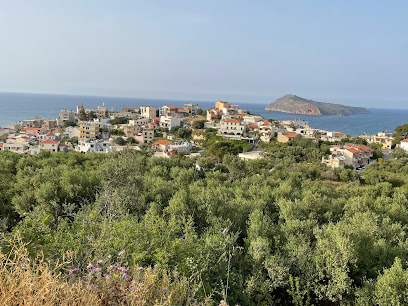
Pirgos
Experience authentic Greek cuisine at Pirgos restaurant in Chania, Crete. Fresh seafood, traditional dishes, and a warm, inviting atmosphere await!
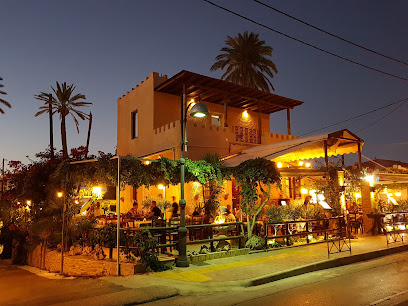
Platanias Beach
Experience the allure of Platanias Beach: golden sands, crystal-clear waters, vibrant nightlife, and a rich history await on Crete's stunning coast.
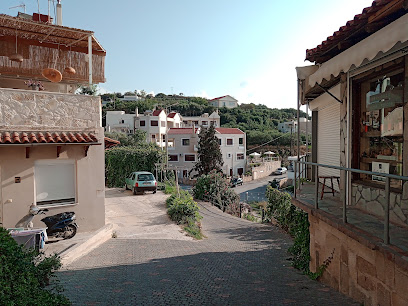
Paralia Platanias
Experience the golden sands and vibrant atmosphere of Paralia Platanias, a perfect blend of relaxation and adventure on Crete's stunning coast.
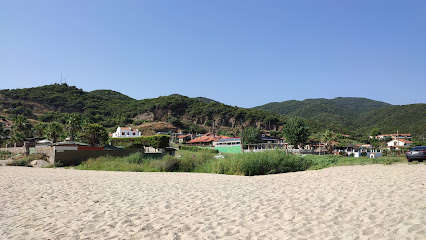
Γερμανικές Στοές Πλατανιά
Explore WWII history in Crete: Discover the German Tunnels of Platanias, a memorial to Cretan resistance and a glimpse into the island's occupied past.
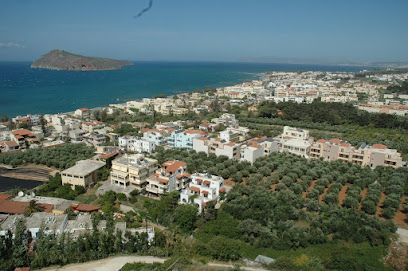
Destination Platanias
Discover the vibrant activities and rich culture at Destination Platanias, your go-to tourist information center in Crete.
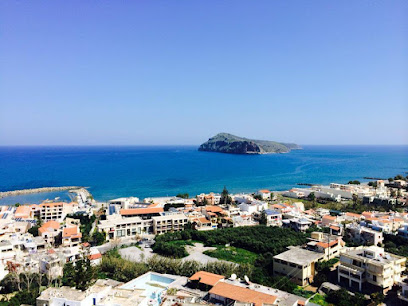
I love Crete Platanias
Discover authentic Cretan souvenirs at I Love Crete Platanias. Find the perfect memento to remember your trip to Crete, from ceramics to local delicacies.
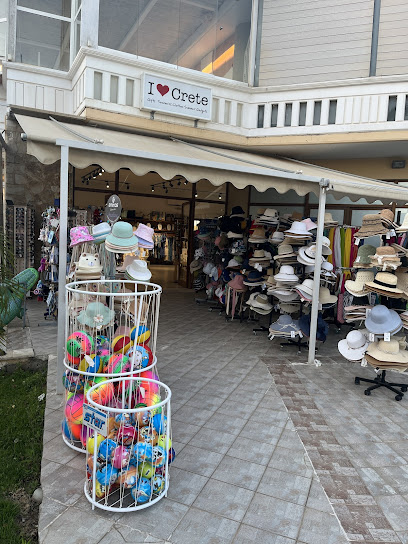
The Little Fun Train - Ideal Beach Hotel Kiosk
Discover the charming coastal beauty of Platanias aboard The Little Fun Train, an enchanting ride for the entire family.
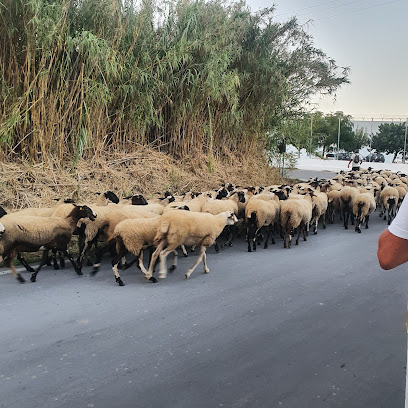
Platanias
Discover Platanias, Pelion: A charming coastal village with stunning beaches, traditional tavernas, and a rich history waiting to be explored.
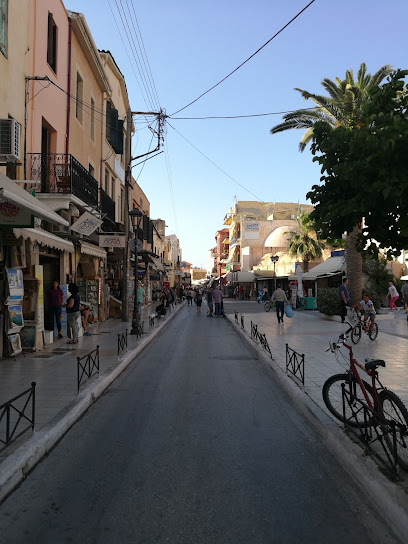
The Little Fun Train - Platanias Square
Discover the charm of Platanias aboard the Little Fun Train, a delightful journey showcasing the beauty and culture of Crete.
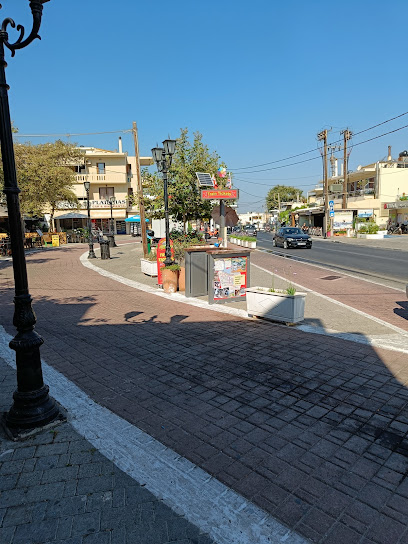
Bunker ruins
Explore the historic Bunker Ruins in Platanias, Crete, offering a poignant glimpse into World War II and the Battle of Crete.
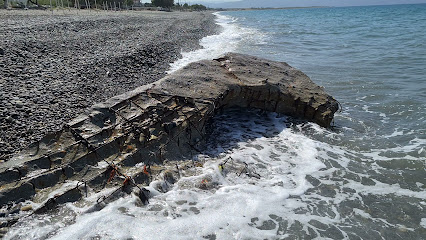
war Memorial
Discover the poignant War Memorial in Chania, a tribute to bravery and resilience, surrounded by the vibrant beauty of Crete's historic city.
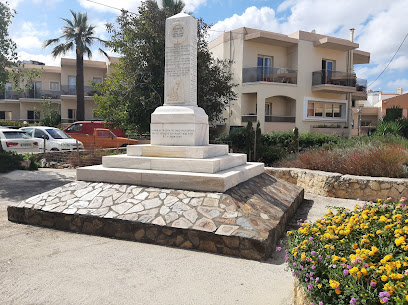
Unmissable attractions to see
Old Venetian Port of Chania
Explore the historical charm and vibrant atmosphere of Chania's Old Venetian Port, a picturesque harbor steeped in history and culture.
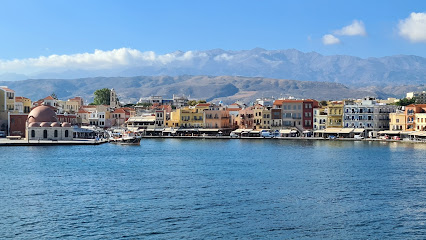
Lighthouse of Chania
Explore the historic Lighthouse of Chania, a mesmerizing landmark that combines stunning views and rich maritime heritage in Crete.
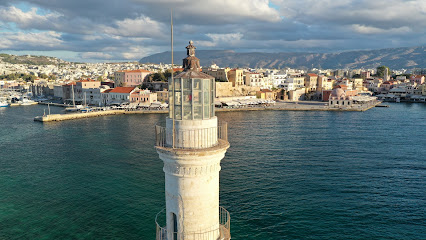
WW2 Museum
Discover the untold stories of World War II at the WW2 Museum in Platanias, a must-visit for history enthusiasts and curious travelers alike.
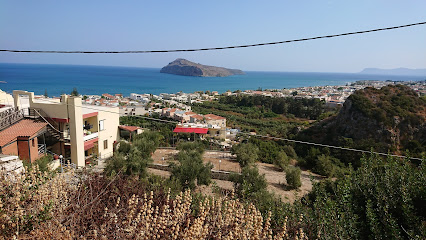
Γερμανικές Στοές Πλατανιά
Explore the rich historical tapestry of Crete at the Germanic Stoa in Platanias, where history and culture come together for an enriching experience.
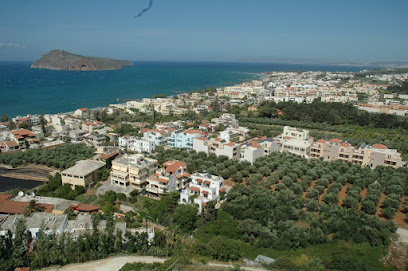
Χρυσή Ακτή
Discover the enchanting Χρυσή Ακτή, a stunning beach in Daratsos, perfect for relaxation and adventure amidst golden sands and crystal-clear waters.
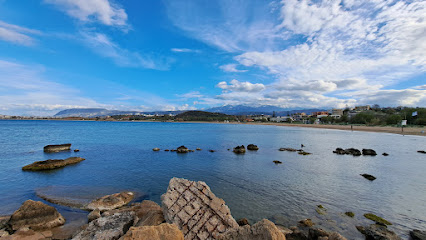
Painted Wall of Minoan Theme
Explore the Painted Wall of Minoan Theme in Chania, a vibrant glimpse into ancient civilization and artistry that enriches your travel experience.
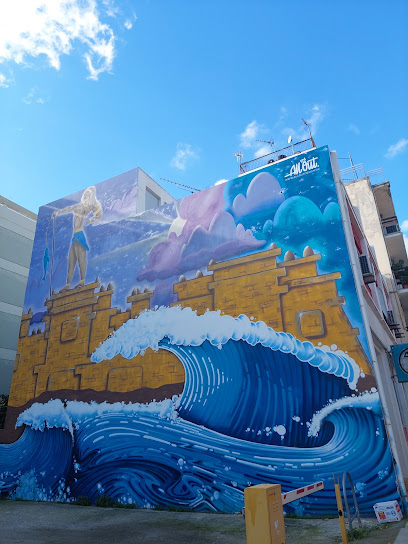
Platanias World War II Battle of Crete Memorial
Explore the Platanias Memorial, a serene tribute to the bravery of soldiers in the Battle of Crete, set in the picturesque landscape of Gerani, Greece.
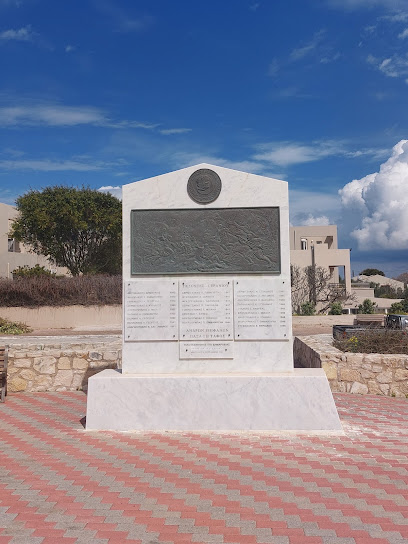
Statue
Experience the cultural heritage and stunning views at the Statue of Platanias, a must-visit tourist attraction in Greece.
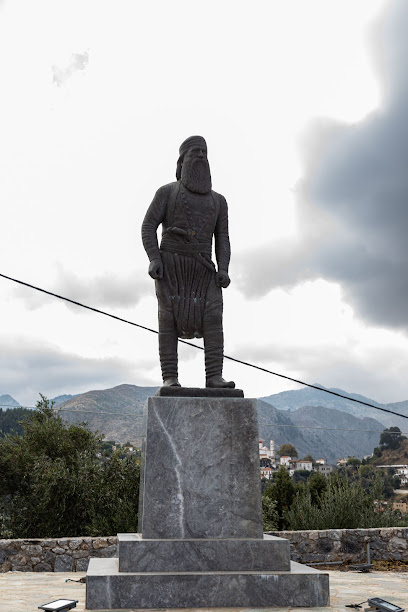
Chania Ebike Tours Meeting Point C
Discover the stunning landscapes of Chania on an electric bike, exploring hidden gems and breathtaking views at your own pace.

Essential places to dine
Kyano
Experience authentic Cretan cuisine at Kyano, where local flavors meet stunning views in the heart of Platanias.
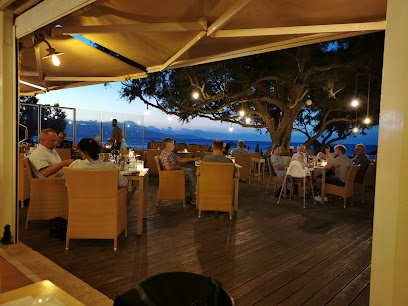
Drosiá
Experience authentic Greek cuisine at Drosiá in Platanias – where tradition meets taste in every delightful dish.
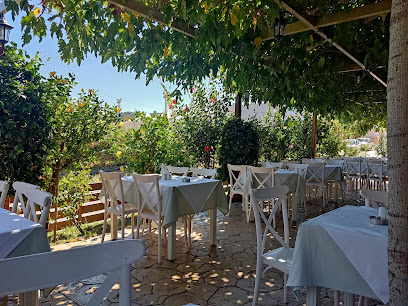
The Olive Tree Restaurant Platanias
Experience authentic Mediterranean flavors at The Olive Tree Restaurant Platanias - where tradition meets modern culinary art.
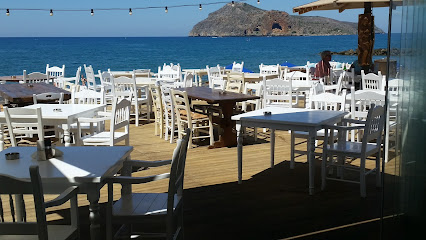
Agioklima Restaurant
Discover authentic Mediterranean flavors at Agioklima Restaurant in Platanias - where every meal is a celebration of local cuisine.
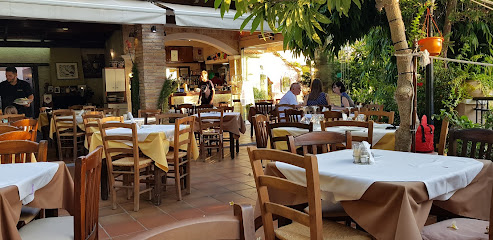
Kanelis Cretan Restaurant
Experience the true taste of Crete at Kanelis Cretan Restaurant, where authentic flavors meet stunning views.
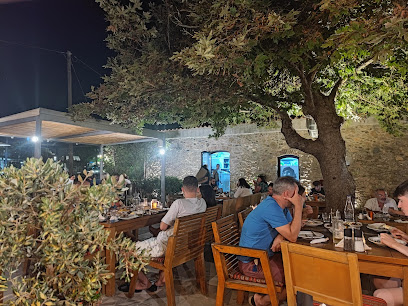
Cosmos
Discover the eclectic flavors of Greece at Cosmos Restaurant in Ano Platanias – where tradition meets innovation in every bite.

Almiras Restaurant
Experience the best of traditional Greek cuisine at Almiras Restaurant in Platanias - where every meal tells a story.
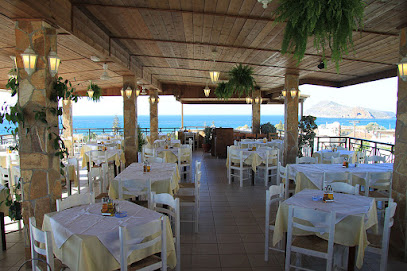
Carpe Diem
Discover authentic Mediterranean flavors at Carpe Diem in Platanias - where every meal is a celebration of local cuisine.
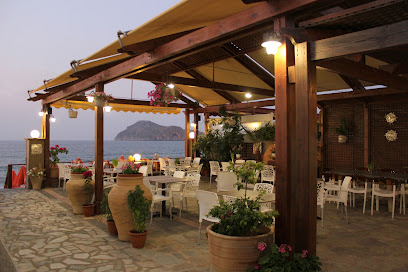
Vigli Restaurant Platanias
Experience exquisite Mediterranean cuisine at Vigli Restaurant in Platanias with stunning sea views and warm hospitality.
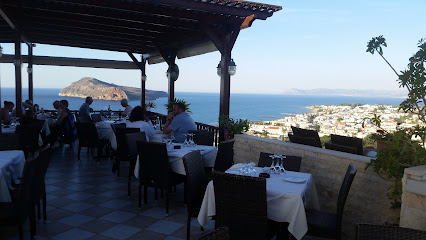
Melina Restaurant
Discover authentic Cretan flavors at Melina Restaurant in Platanias—where fresh ingredients meet warm hospitality.
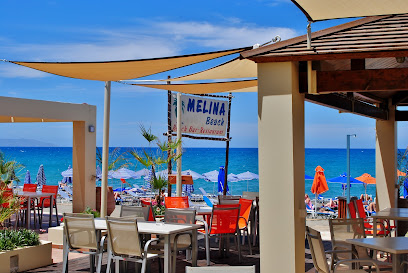
Markets, malls and hidden boutiques
OLEA
Experience the vibrant shopping scene at OLEA in Platanias, where local culture meets international brands and delightful dining options await.
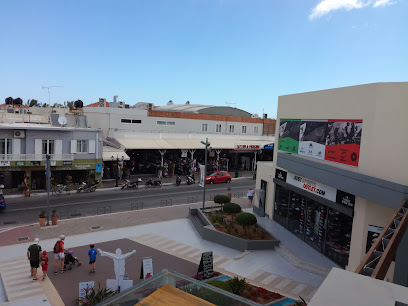
World of Wood
Explore unique wooden handicrafts and artistic treasures at World of Wood in Platanias, a must-visit shopping destination in Crete.
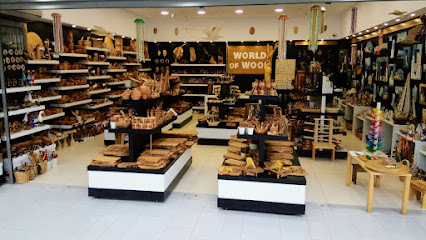
Elephant Store
Explore the Elephant Store in Platanias for unique Cretan souvenirs and gifts that embody the spirit of the island.
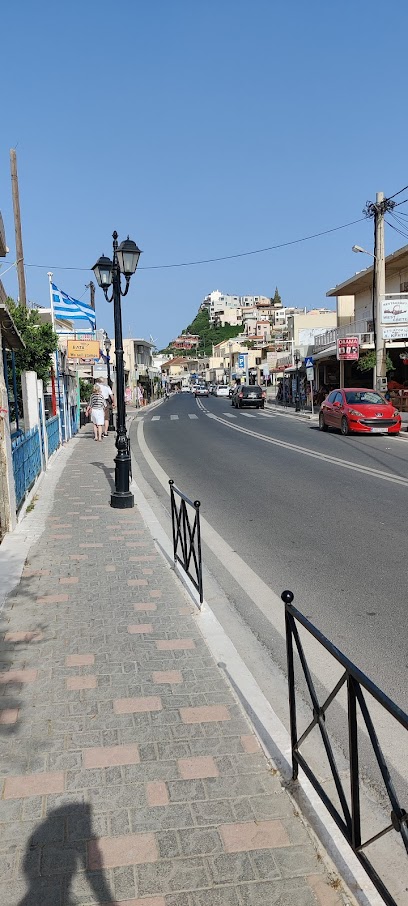
Platanias creations
Explore Platanias Creations in Chania for unique Cretan gifts, handcrafted treasures, and a taste of local artistry that captures the spirit of Crete.
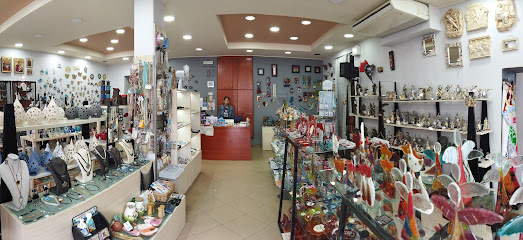
Cosi
Discover unique handmade fashion at Cosi in Platanias, where local craftsmanship meets style for an unforgettable shopping experience.
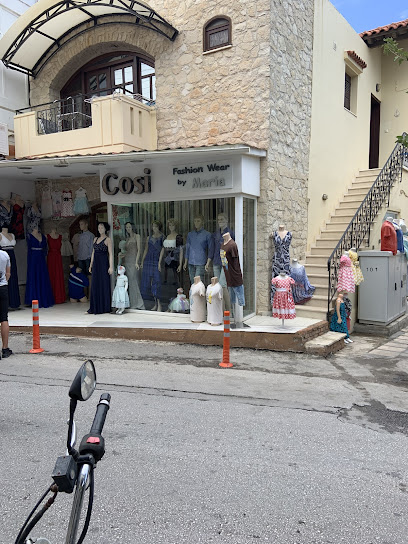
Splash on the beach
Explore Splash on the Beach for unique souvenirs, local crafts, and beach essentials in the heart of Platanias, Greece.
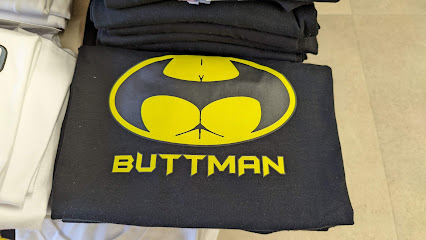
Gift o’ clock
Discover unique gifts and quirky souvenirs at Gift o’ Clock, a must-visit novelty store in Platanias, Greece.
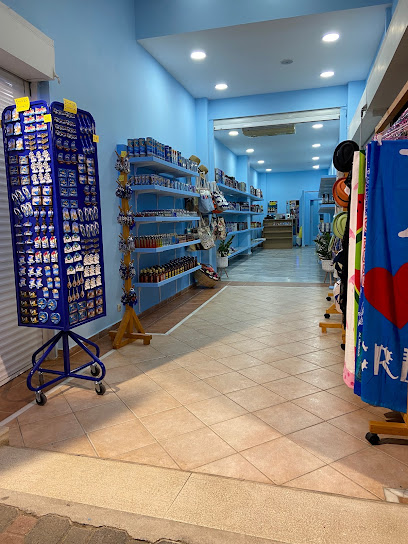
LIFES GARDEN
Explore Life's Garden in Platanias for authentic Cretan souvenirs and handcrafted treasures that reflect the island's rich culture and artistic heritage.
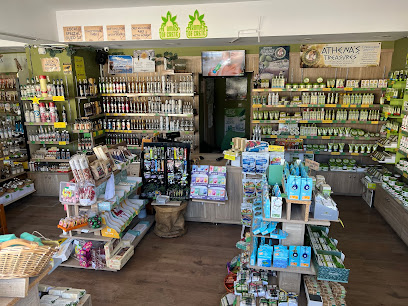
Dress Up
Explore Dress Up in Platanias for a unique shopping experience filled with trendy clothing and stylish accessories, perfect for every occasion.
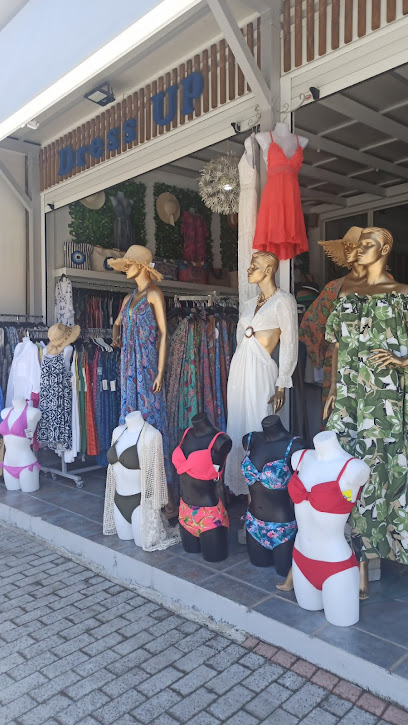
I love Crete Platanias
Explore a treasure trove of unique Cretan souvenirs at I Love Crete Platanias, your go-to gift shop in the heart of Platanias.
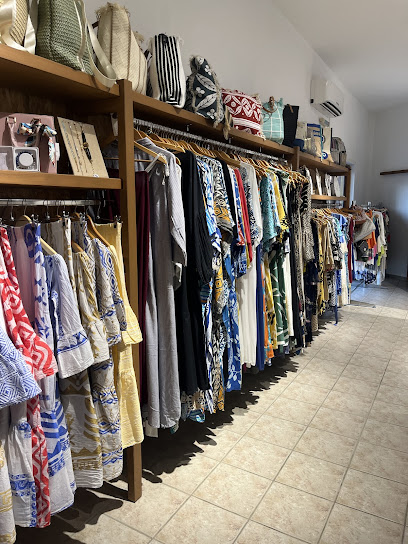
Essential bars & hidden hideouts
Neromilos
Experience the ultimate beachside relaxation at Neromilos, a top-rated bar in Platanias, Crete, where refreshing cocktails and stunning views await.
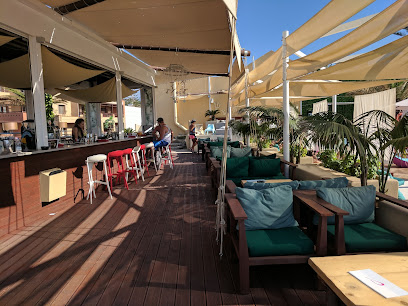
Jørgen Bar wine & tapas
Discover the flavors of Greece at Jørgen Bar Wine & Tapas, where exquisite tapas and fine wines create an unforgettable dining experience in Platanias.
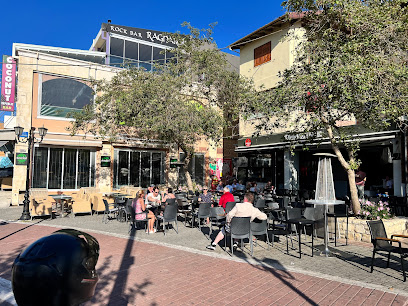
Manteio Cocktail bar
Experience the perfect blend of vibrant cocktails, delicious cuisine, and a lively atmosphere at Manteio Cocktail Bar in Platanias, Chania.
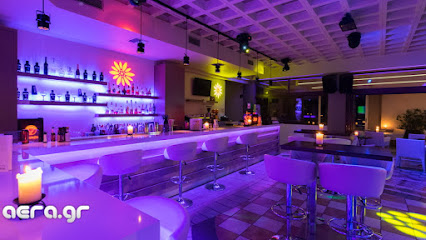
The ruin
Experience the vibrant atmosphere of The Ruin, a bar in Platanias, where local culture meets refreshing drinks and unforgettable nights.
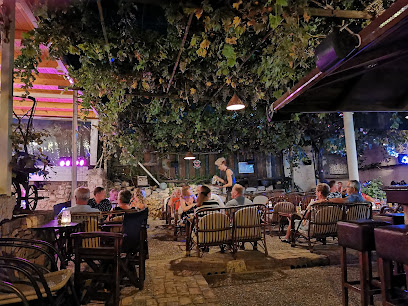
Social Cocktail bar Platanias
Discover the vibrant atmosphere and expertly crafted cocktails at Social Cocktail Bar Platanias, the heart of nightlife in this charming coastal town.
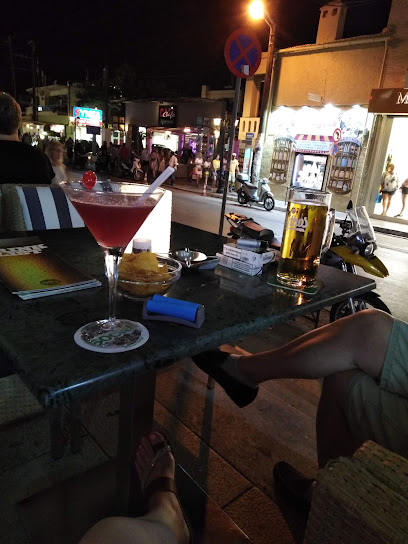
Las Americas Cocktails & Tapas
Discover a lively bar in Platanias offering exquisite cocktails and delicious tapas, perfect for a memorable night out in Crete.
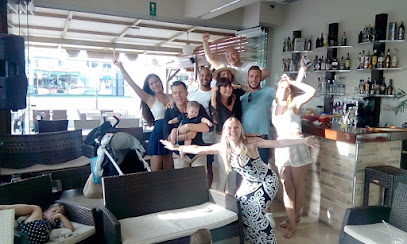
Utopia
Discover Utopia, a premier cocktail bar and café in Platanias, Crete, offering a delightful mix of drinks, snacks, and vibrant atmosphere.
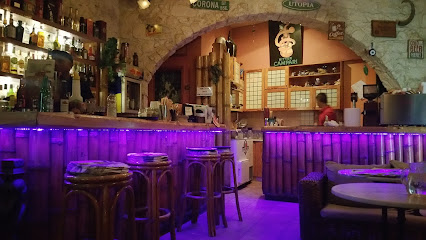
Eclipse Bar Platanias
Discover the vibrant nightlife of Platanias at Eclipse Bar, where cocktails and music create unforgettable memories on your Crete adventure.
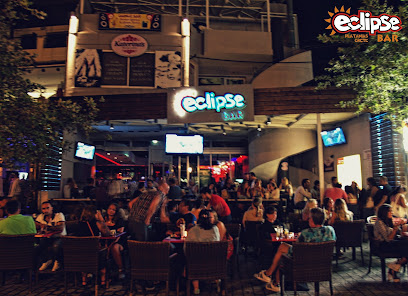
Red Lips
Discover the vibrant flavors of Mediterranean cuisine at Red Lips, a premier grill restaurant in the heart of Platanias, Greece.
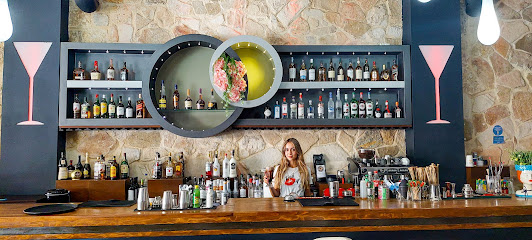
Nero Wine Cellar Bar Restaurant
Discover the elegance of Nero Wine Cellar Bar Restaurant in Platanias, where exquisite wines meet culinary artistry in a breathtaking Mediterranean setting.
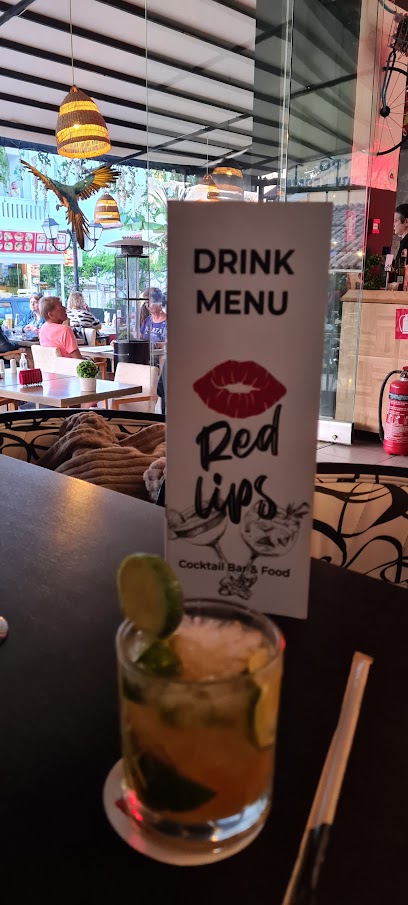
Local Phrases
-
- HelloΓεια σας
[Ya sas] - GoodbyeΑντίο
[Adio] - YesΝαι
[Ne] - NoΌχι
[Ohi] - Please/You're welcomeΠαρακαλώ
[Parakalo] - Thank youΕυχαριστώ
[Efharisto] - Excuse me/SorryΣυγγνώμη
[Signomi] - How are you?Πώς είσαι;
[Pos ise;] - Fine. And you?Καλά. Εσύ;
[Kala. Esi;] - Do you speak English?Μιλάτε Αγγλικά;
[Milate Agglika;] - I don't understandΔεν καταλαβαίνω
[Den katalaveno]
- HelloΓεια σας
-
- I'd like to see the menu, pleaseΘα ήθελα να δω το μενού, παρακαλώ
[Tha ithela na do to menou, parakalo] - I don't eat meatΔεν τρώω κρέας
[Den troo kreas] - Cheers!Στην υγειά σας!
[Stin ygeia sas!] - I would like to pay, pleaseΘα ήθελα να πληρώσω, παρακαλώ
[Tha ithela na plirosou, parakalo]
- I'd like to see the menu, pleaseΘα ήθελα να δω το μενού, παρακαλώ
-
- Help!Βοήθεια!
[Voithia!] - Go away!Πήγαινε μακριά!
[Pigaine makria!] - Call the Police!Καλέστε την Αστυνομία!
[Kaleste tin Astynomia!] - Call a doctor!Καλέστε γιατρό!
[Kaleste giatro!] - I'm lostΈχω χαθεί
[Eho hathee] - I'm illΕίμαι άρρωστος
[Eimai arrostos]
- Help!Βοήθεια!
-
- I'd like to buy...Θα ήθελα να αγοράσω...
[Tha ithela na agorasou...] - I'm just lookingΑπλά κοιτάω
[Apla kitao] - How much is it?Πόσο κοστίζει;
[Poso kostizi;] - That's too expensiveΑυτό είναι πολύ ακριβό
[Afto ine poli akribo] - Can you lower the price?Μπορείτε να μειώσετε την τιμή;
[Borite na meiosete tin timi;]
- I'd like to buy...Θα ήθελα να αγοράσω...
-
- What time is it?Τι ώρα είναι;
[Ti ora ine;] - It's one o'clockΕίναι μία ώρα
[Ine mia ora] - Half past (10)Μισή (10)
[Misi (dekka)] - MorningΠρωί
[Proi] - AfternoonΑπόγευμα
[Apoyevma] - EveningΒράδυ
[Vradi] - YesterdayΧθες
[Hthes] - TodayΣήμερα
[Simera] - TomorrowΑύριο
[Avrio] - 1Ένα
[Ena] - 2Δύο
[Dio] - 3Τρία
[Tria] - 4Τέσσερα
[Tessera] - 5Πέντε
[Pente] - 6Έξι
[Exi] - 7Επτά
[Epta] - 8Οκτώ
[Okto] - 9Εννιά
[Ennia] - 10Δέκα
[Deka]
- What time is it?Τι ώρα είναι;
-
- Where's a/the...?Πού είναι ένα/το...;
[Pou ine ena/to...;] - What's the address?Ποια είναι η διεύθυνση;
[Pia ine i diefthinsi;] - Can you show me (on the map)?Μπορείτε να μου δείξετε (στο χάρτη);
[Borite na mou dixete (sto charti);] - When's the next (bus)?Πότε είναι το επόμενο (λεωφορείο);
[Pote ine to epomeno (leoforeio);] - A ticket (to ....)Ένα εισιτήριο (για ....)
[Ena isitirio (gia ....)]
- Where's a/the...?Πού είναι ένα/το...;
History of Platanias
-
Platanias, located just west of Chania, has a rich historical background that dates back to ancient times. The area was an important settlement during the Minoan civilization, which thrived from approximately 2700 to 1450 BC. Archaeological findings in the region suggest that Platanias was a part of the network of trade routes connecting Crete with mainland Greece and other civilizations across the Mediterranean.
-
During the Byzantine period, Platanias became a notable coastal settlement. The strategic location of the area made it a focal point for trade and military defense. With the arrival of the Venetians in the 13th century, Platanias experienced significant development, as they fortified the coastline and built structures that reflected their architectural style. The remnants of this period can still be observed in the local architecture and historical sites.
-
After the fall of Candia (Heraklion) to the Ottomans in 1669, Platanias was incorporated into the Ottoman Empire. The area became known for its agricultural production, especially olive oil and wine. The Ottomans introduced new cultural elements, which blended with the existing traditions of the locals. This period saw the construction of various religious and communal buildings that would shape the neighborhood's cultural landscape.
-
Platanias played a significant role during World War II, especially during the German occupation of Crete. The local population was involved in various resistance activities against the occupiers. The village became a hub for allied forces and partisans, with many locals risking their lives to protect their homeland. This period is commemorated in various memorials and museums in the area.
-
In the latter half of the 20th century, Platanias transitioned into a popular tourist destination, benefiting from its proximity to Chania and its beautiful beaches. The influx of tourists led to significant economic growth and the development of infrastructure to support the hospitality industry. Today, Platanias is known for its vibrant atmosphere, bustling promenade, and cultural events that reflect the rich heritage of the region.
Platanias Essentials
-
Platanias is located approximately 10 kilometers west of Chania city center. The easiest way to reach Platanias is by bus from Chania, with regular services operated by KTEL. The journey takes around 30 minutes. Taxis are also available and provide a quicker, albeit more expensive, option. For those arriving by car, follow the E65 road from Chania, which leads directly to Platanias.
-
Platanias is a compact area, making it easy to explore on foot. Public buses connect Platanias to Chania and nearby towns, while taxis are readily available for longer trips. Bicycles can be rented from local shops, allowing for a leisurely exploration of the coastline and surrounding areas. Some hotels also offer shuttle services to popular destinations.
-
Platanias is generally a safe neighborhood for tourists. However, standard precautions should be taken, such as avoiding poorly lit areas at night and keeping valuables secure. While there are no specific high-crime areas targeting tourists, petty theft can occur in crowded places, so remain vigilant in such environments.
-
In case of an emergency, dial 112 for immediate assistance. The local police station is located in Platanias, and medical facilities are available nearby in Chania. It is advisable to have travel insurance that covers medical emergencies. For non-urgent health issues, local pharmacies can provide over-the-counter medications.
-
Fashion: Do wear light, comfortable clothing suitable for the warm climate. Beachwear is acceptable at the beach but not in restaurants or shops. Religion: Do respect local customs, particularly when visiting churches and monasteries. Public Transport: Do be courteous on public transport; offer your seat to the elderly. Don't eat or drink on buses. Greetings: Do greet locals with a friendly 'Kalimera' (Good Morning). Eating & Drinking: Do try the local cuisine and share meals with friends. Don't waste food; it is considered disrespectful.
-
To experience Platanias like a local, visit the weekly farmers' market to sample fresh produce and traditional foods. Engage with local tavern owners to discover hidden gems serving authentic Cretan dishes. Don’t miss the chance to explore nearby beaches and the scenic coastline on foot or by bike, and try to catch a local festival or cultural event for a taste of the vibrant community spirit.
-
Platanias enjoys a Mediterranean climate with hot, dry summers and mild, wet winters. The best time to visit is from late spring to early autumn (May to September) when the weather is warm and ideal for beach activities. However, late spring and early fall also offer fewer crowds and pleasant temperatures for sightseeing.
-
Cretan cuisine is renowned for its fresh ingredients and healthy options. When in Platanias, do sample local dishes such as moussaka, dakos (barley rusk), and fresh seafood. Look for tavernas that serve meze, a variety of small dishes to share. Don't hesitate to ask for recommendations from locals to find the best dining spots.
Nearby Cities to Platanias
-
Things To Do in Rethymno
-
Things To Do in Crete
-
Things To Do in Heraklion
-
Things To Do in Pyrgos
-
Things To Do in Santorini
-
Things To Do in Kalamata
-
Things To Do in Nafplio
-
Things To Do in Mykonos
-
Things To Do in Athens
-
Things To Do in Olympia
-
Things To Do in Kos
-
Things To Do in Delphi
-
Things To Do in Bodrum
-
Things To Do in Patras
-
Things To Do in Zakynthos











